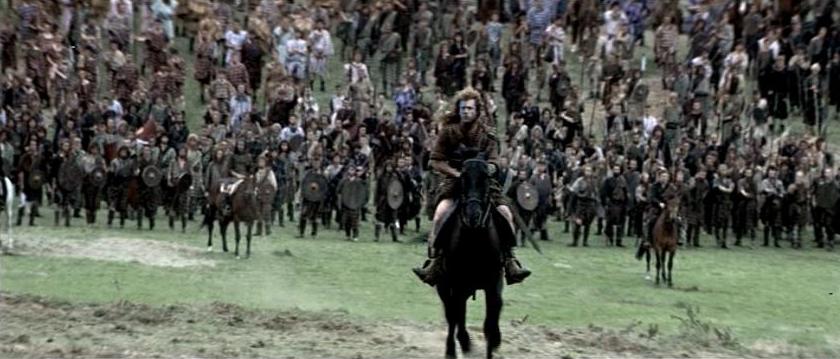
First Saw It:
February 16, 1996, at the Sony Fresh Pond in Cambridge, MA
 |
Winner '95: First Saw It: |
Braveheart February 16, 1996, at the Sony Fresh Pond in Cambridge, MA | ||
|---|---|---|---|---|
| Bridesmaids: | Apollo 13, Babe, Il Postino, Sense and Sensibility | |||
| My Vote: | Babe, and when Sidney Poitier made that "B" sound, I was sure the little pig had won it | |||
| Overlooked: | Safe, The Bridges of Madison County, Toy Story, Nixon, Dead Man Walking |
 |
| Photo © 1995 Paramount Pictures/Icon Productions |
| Academy Award Nominations and Winners: | |
| ★ | Best Picture |
| ★ | Best Director: Mel Gibson |
| Best Original Screenplay: Randall Wallace | |
| ★ | Best Cinematography: John Toll |
| Best Costume Design: Charles Knode | |
| Best Film Editing: Steven Rosenblum | |
| Best Original Score: James Horner | |
| Best Sound: Andy Nelson, Scott Millan, Anna Behlmer, and Brian Simmons | |
| ★ | Best Sound Effects: Lon Bender & Per Hallberg |
| ★ | Best Makeup: Peter Frampton, Paul Pattison, and Lois Burwell |
| Golden Globe Nominations and Winners: | |
| Best Picture (Drama) | |
| ★ | Best Director: Mel Gibson |
| Best Screenplay: Randall Wallace | |
| Best Original Score: James Horner | |
| Other Awards: | |
| Writers Guild of America: Best Original Screenplay | |
| National Board of Review: Special Achievement in Filmmaking (Gibson) | |
| British Academy Awards (BAFTAs): Best Cinematography; Best Costume Design; Best Sound | |
| Permalink | Home | 1995 | ABC | Blog |